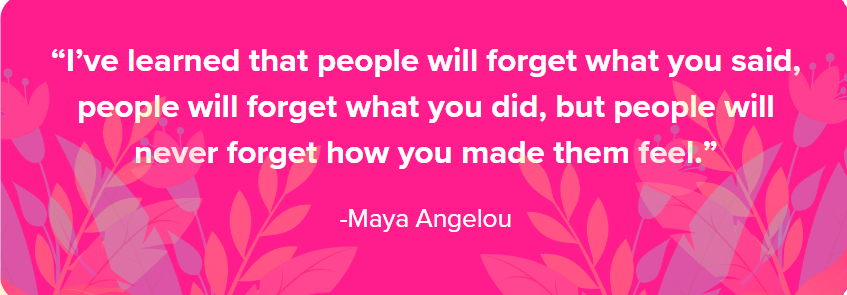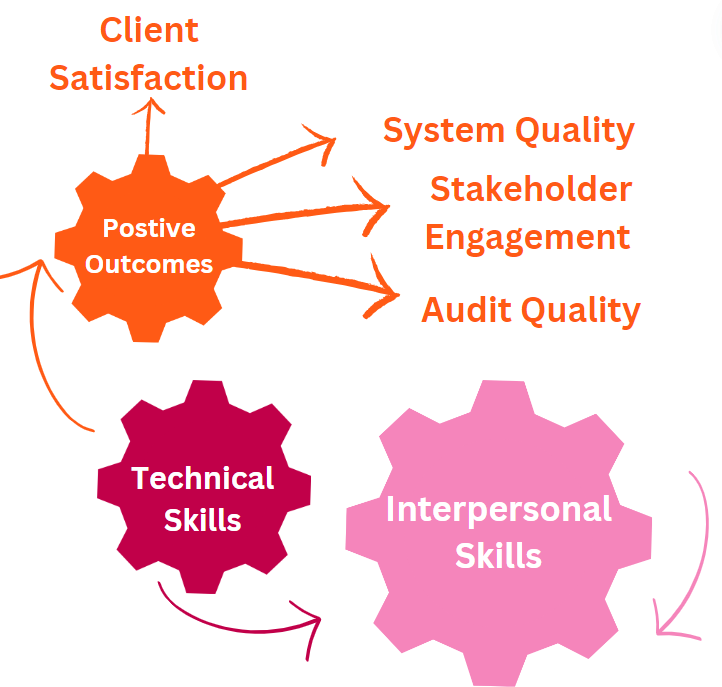August 14th, 2024

It’s Not the Technical Skills, It’s the Soft Skills
You’ve all heard the stereotype about IT professionals, I’m sure. Masters of hardware, software, and all things tech, yet when it comes to chitchat and stakeholder schmoozing, they’re rumored to be a bit more… binary.
And you can often say the same thing about auditors, I’m afraid! Renowned for their brown cardigans and leather elbow patches, their ability to recite clause numbers and ISO requirements, they are sometimes playfully accused of being more at home with Standards, systems and procedures than with fun banter and building rapport.
Many years ago, at the beginning of my consulting career, I met another couple of new consultants embarking on their ISO journey. Michael loved his ISO Standards and in a conversation with him, he would sprout off and quote clauses word for word – quite entertaining really! Then there was Mick, he also loved his ISO Standards but liked carrying them around with him and studying them when he needed to. I enjoyed many a chat with Mick, not only about ISO but life in general. He was really comfortable to talk to and the clients I met that he worked with enjoyed working with him. This made the process so much easier and comfortable for all concerned, most importantly the client.
Several years later I bumped into Michael, and he told me that he had trouble getting and keeping clients, so he decided to work for a company on salary instead. Meanwhile, Mick was booked out for months ahead, as people were clambering to work with him.
This shows that while expertise and knowledge are invaluable, it’s often the human touch, the ability to engage and connect on a personal level, that truly sets professionals apart and defines their success.

—
Jobs Requiring High Levels of Social Interaction Are Growing
Harvard Graduate School of Education discusses the growing importance of social skills in the labor market. Jobs that require high levels of social interaction have seen an increase, while those with less need for such skills have declined. This shift underscores the premium placed on interpersonal abilities, as they are hard to automate and crucial for collaboration and adaptability in various situations. The research highlights that these social competencies are key in diverse roles and are increasingly valued in the professional landscape.
The Synergy of Success
As you dissect the layers of what makes an ISO Professional truly effective, you must look beyond the binary view of technical expertise. While a deep understanding of standards and protocols is non-negotiable, we, as ISO professionals of today will scale to new heights of success by embracing a more rounded skill set. This conceptual model captures the essence of the dynamics of hard and soft skills that shapes the outcomes of our work

Interpersonal Skills Gear: This central gear represents the core interpersonal abilities an auditor or consultant must cultivate. It’s where empathy, effective communication, adaptability, and rapport building reside. These skills are essential for fostering trust and understanding with clients and colleagues.
- Technical Skills Gear: Interlocked with the interpersonal skills gear, this gear stands for the expertise in standards, principles, and procedures. It underscores that while interpersonal skills are pivotal, technical knowledge remains crucial for accurate and reliable auditing.
- Positive Outcomes Gear: This is the resulting benefits gear, driven by the two previous skill sets working in tandem. The positive outcomes (System Quality, Client Satisfaction, Stakeholder Engagement, and Audit Quality) represent key metrics of success in auditing and consulting. They’re the tangible results that stem from the harmonious operation of both interpersonal and technical skills.
The model isn’t just a static depiction; it’s a dynamic illustration of the ISO professionals’ journey, continually propelled by the dual engines of technical prowess and most importantly human connection.
Your Next Steps
1. Complete the Quiz: Take a short quiz to assess your current understanding and proficiency in various areas of soft skills.
2. Self-Reflection: Engage in a self-reflection exercise to evaluate your interpersonal abilities and identify areas for improvement.
3. Soft Skill Development: Access targeted resources and activities designed to enhance your soft skills, such as communication, teamwork, and problem-solving.
Work with an ISO Career Expert: Elevate your career as an ISO leader.
Check out our programs and see which one best suits you!

View comments
+ Leave a comment